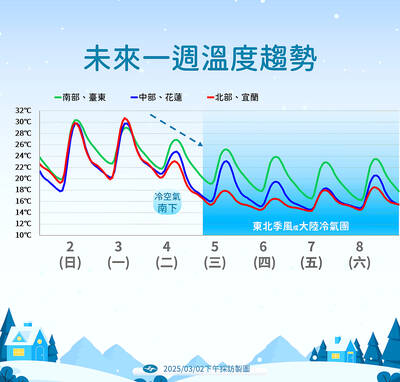Automaking giant Ford will slash 450 jobs in Australia as it battles falling sales and the global financial crisis, it announced yesterday, taking its total job cuts to 1,400 by 2010.
The job losses, which come as Australia’s economy slows and unemployment numbers rise, represent about 10 percent of the company’s workforce in its plants in the southern state of Victoria.
The latest redundancies will be on a voluntary basis and the company expects that enough employees will sign up for them by the end of the year, Ford Australia chief executive Marin Burela told a news conference.
‘PROACTIVE STEP’
“It’s absolutely critical that we take a proactive step, that we position ourselves for strength in terms of where we’re heading into 2009 and beyond,” Burela said.
“Clearly the economic conditions around the world and certainly some of the things we’re facing in Australia have had a severe impact on us as a business,” he said.
“We don’t take these steps and these actions lightly, but we are committed to working with our employees and our union partners to provide a smooth transition for our people as we move forward.”
Volatile exchange rates, oil prices and the global financial turmoil had all contributed to the decision, Burela said.
“There are many things that are happening around the world. We cannot control exchange rates and we cannot control things that happen externally,” he said, adding that what Ford Australia could control was its staff numbers.
The job cuts follow a strategic review amid a deterioration in the business in recent months are the “right thing to do” to position the company in the environment, he said.
Burela said the redundancies would cover all the company’s operations in Victoria state and would be equally spread between its Geelong and Broadmeadows plants, which together employ about 4,500 staff.
LOWER OUTPUT
The latest cuts came after Ford in August announced 350 jobs were to go from the factories next month, with plans to reduce output by up to a quarter, or about 18,000 cars a year.
In July last year, it announced it would cut 600 jobs by 2010 with the closure of the Geelong engine plant.
Union leaders said the new job losses raised questions about Ford’s continued production of big cars and said the cuts were bad news for the industry, including for parts suppliers.
“Today is disappointing to our members who work on the sites and for workers on the supply chain,” said Steve Dargavel, Victorian state secretary of the Australian Manufacturing Workers Union.

SECURITY: The purpose for giving Hong Kong and Macau residents more lenient paths to permanent residency no longer applies due to China’s policies, a source said The government is considering removing an optional path to citizenship for residents from Hong Kong and Macau, and lengthening the terms for permanent residence eligibility, a source said yesterday. In a bid to prevent the Chinese Communist Party (CCP) from infiltrating Taiwan through immigration from Hong Kong and Macau, the government could amend immigration laws for residents of the territories who currently receive preferential treatment, an official familiar with the matter speaking on condition of anonymity said. The move was part of “national security-related legislative reform,” they added. Under the amendments, arrivals from the Chinese territories would have to reside in Taiwan for

CRITICAL MOVE: TSMC’s plan to invest another US$100 billion in US chipmaking would boost Taiwan’s competitive edge in the global market, the premier said The government would ensure that the most advanced chipmaking technology stays in Taiwan while assisting Taiwan Semiconductor Manufacturing Co (TSMC, 台積電) in investing overseas, the Presidential Office said yesterday. The statement follows a joint announcement by the world’s largest contract chipmaker and US President Donald Trump on Monday that TSMC would invest an additional US$100 billion over the next four years to expand its semiconductor manufacturing operations in the US, which would include construction of three new chip fabrication plants, two advanced packaging facilities, and a research and development center. The government knew about the deal in advance and would assist, Presidential

‘DANGEROUS GAME’: Legislative Yuan budget cuts have already become a point of discussion for Democrats and Republicans in Washington, Elbridge Colby said Taiwan’s fall to China “would be a disaster for American interests” and Taipei must raise defense spending to deter Beijing, US President Donald Trump’s pick to lead Pentagon policy, Elbridge Colby, said on Tuesday during his US Senate confirmation hearing. The nominee for US undersecretary of defense for policy told the Armed Services Committee that Washington needs to motivate Taiwan to avoid a conflict with China and that he is “profoundly disturbed” about its perceived reluctance to raise defense spending closer to 10 percent of GDP. Colby, a China hawk who also served in the Pentagon in Trump’s first team,

The arrival of a cold front tomorrow could plunge temperatures into the mid-teens, the Central Weather Administration (CWA) said. Temperatures yesterday rose to 28°C to 30°C in northern and eastern Taiwan, and 32°C to 33°C in central and southern Taiwan, CWA data showed. Similar but mostly cloudy weather is expected today, the CWA said. However, the arrival of a cold air mass tomorrow would cause a rapid drop in temperatures to 15°C cooler than the previous day’s highs. The cold front, which is expected to last through the weekend, would bring steady rainfall tomorrow, along with multiple waves of showers